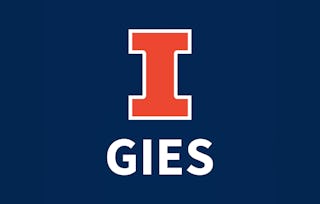In this course, you will explore advanced topics in financial accounting. You will start your journey with accounting for assets with more than a 1-year life. You will learn in detail how firms account for fixed assets. You will then move on to the financing of assets and discuss accounting for liabilities. The course will continue with an in-depth exploration of shareholders’ equity. Finally, you will critically evaluate the preparation, components, and analysis of the cash flows statement.

Financial Accounting: Advanced Topics
Ends tomorrow! Gain next-level skills with Coursera Plus for $199 (regularly $399). Save now.

Financial Accounting: Advanced Topics
This course is part of multiple programs.

Instructor: Oktay Urcan
65,294 already enrolled
Included with
(1,761 reviews)
What you'll learn
To account for fixed assets
Understand accounting for liabilities
Evaluate shareholders’ equity section of a balance sheet, and
Understand preparation and information provided by cash flows statement.
Skills you'll gain
Details to know

Add to your LinkedIn profile
24 assignments
See how employees at top companies are mastering in-demand skills

Build your subject-matter expertise
- Learn new concepts from industry experts
- Gain a foundational understanding of a subject or tool
- Develop job-relevant skills with hands-on projects
- Earn a shareable career certificate

There are 4 modules in this course
In this module, you will become familiar with the course, your classmates, and our learning environment. The orientation will also help you obtain the technical skills required for the course. This module will also be teaching you about Long-term assets. Long-term assets, assets that can be converted into cash in a time period of more than 1 year, constitute a large portion of a balance sheet for a lot of public companies. Understanding accounting for long-term assets will help you uncover how these accounts change over time, their valuation, and their usefulness in managerial decision making.
What's included
9 videos10 readings8 assignments1 discussion prompt1 plugin
One of the major sources of financing for many firms is liabilities. Firms routinely finance their operations through various liabilities, including accounts payable, bank loans, and bonds. Accounting for liabilities will help you understand how liabilities are created, how they are valued, and how they inform a firm’s liquidity position.
What's included
7 videos4 readings6 assignments
One of the major sources of financing for many firms is contributions from shareholders. The shareholders’ equity section of a balance sheet shows details of the investments of shareholders. Accounting for shareholders’ equity will help you understand the amount of shareholder investment, the number of shares issued in return by the firm for shareholders, the amount of earnings earned by the firm but not distributed to shareholders, and information about the amount of shares repurchased by the firm from the stock market.
What's included
6 videos5 readings6 assignments
One of the major financial statements is cash flows statement. This statement describes in detail how cash changes for a firm over a certain period. The cash flows statement provides valuable information about the liquidity position of a firm, the cash consequences of managerial operating and investing decisions, as well as the earnings quality of a firm.
What's included
5 videos6 readings4 assignments1 peer review
Earn a career certificate
Add this credential to your LinkedIn profile, resume, or CV. Share it on social media and in your performance review.
Build toward a degree
This course is part of the following degree program(s) offered by University of Illinois Urbana-Champaign. If you are admitted and enroll, your completed coursework may count toward your degree learning and your progress can transfer with you.¹
Instructor

Offered by
Explore more from Finance
 Status: Free Trial
Status: Free TrialUniversity of Illinois Urbana-Champaign
 Status: Free Trial
Status: Free Trial Status: Free Trial
Status: Free TrialUniversity of Illinois Urbana-Champaign
 Status: Free Trial
Status: Free Trial
Why people choose Coursera for their career

Felipe M.

Jennifer J.

Larry W.

Chaitanya A.
Learner reviews
- 5 stars
80.24%
- 4 stars
15.72%
- 3 stars
2.66%
- 2 stars
0.51%
- 1 star
0.85%
Showing 3 of 1761
Reviewed on Sep 12, 2020
Difficult but very informative and material is high quality and professor is very helpful but I felt so sessions deserved more time to grasp
Reviewed on Mar 3, 2018
A lot of information to learn in such shorts sessions, but I felt the info and professors delivery kept my interest and challenged my thinking.
Reviewed on Jul 11, 2020
Great course on financial accounting. Concepts were explained precisely and the appropriate examples and case studies were helpful to work with the actual data. Highly suggested course.

Open new doors with Coursera Plus
Unlimited access to 10,000+ world-class courses, hands-on projects, and job-ready certificate programs - all included in your subscription
Advance your career with an online degree
Earn a degree from world-class universities - 100% online
Join over 3,400 global companies that choose Coursera for Business
Upskill your employees to excel in the digital economy
Frequently asked questions
Once you enroll for a Certificate, you’ll have access to all videos, quizzes, and programming assignments (if applicable). If you choose to explore the course without purchasing, you may not be able to access certain assignments.
You will be eligible for a full refund until 2 weeks after your payment date. You cannot receive a refund once you’ve earned a Course Certificate, even if you complete the course within the 2-week refund period. View our full refund policy.
Yes! Coursera provides financial aid to learners who would like to complete a course but cannot afford the course fee. To apply for aid, select "Learn more and apply" in the Financial Aid section below the "Enroll" button. You'll be prompted to complete a simple application; no other paperwork is required.
More questions
Financial aid available,

